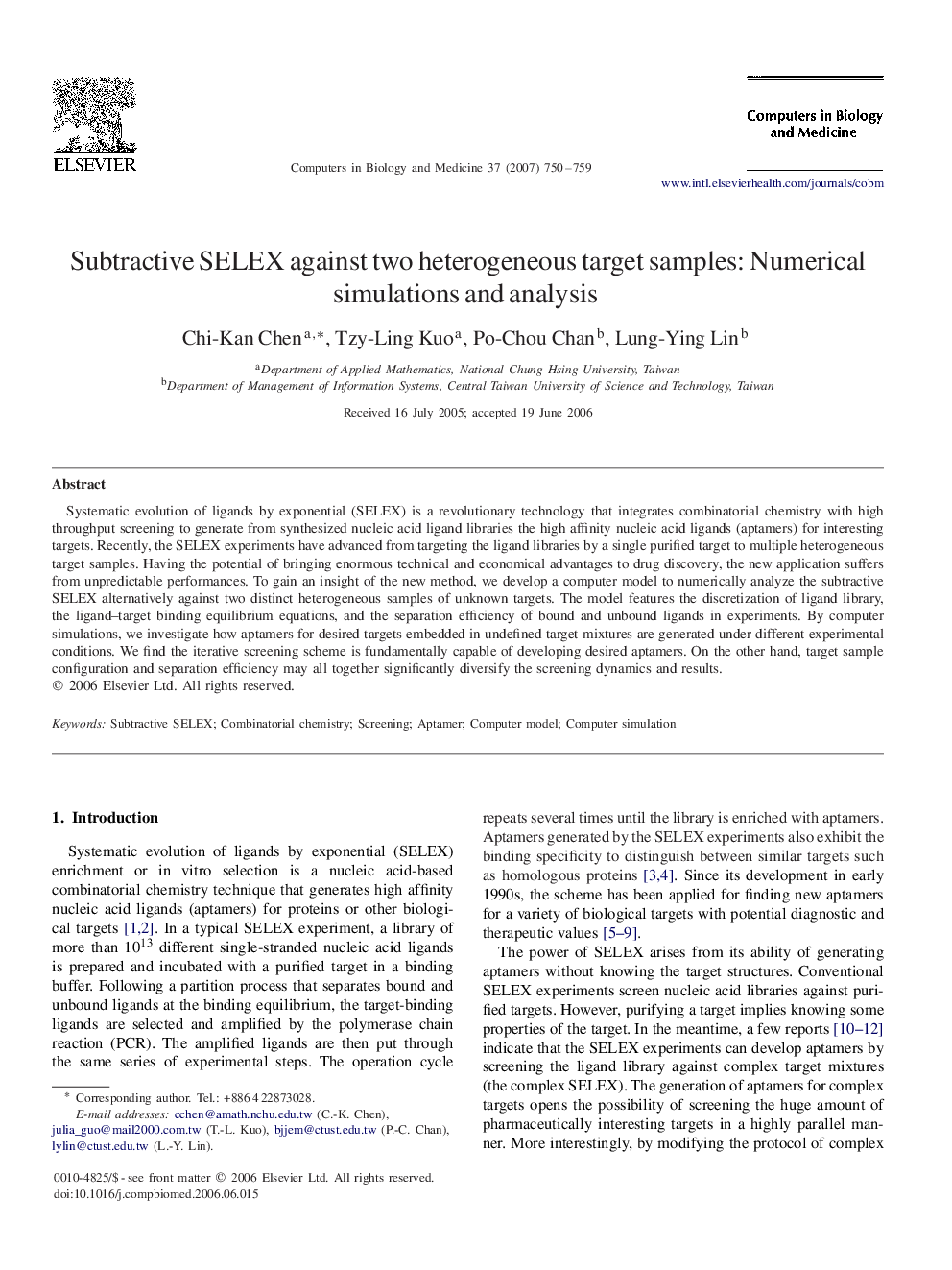| Article ID | Journal | Published Year | Pages | File Type |
|---|---|---|---|---|
| 505900 | Computers in Biology and Medicine | 2007 | 10 Pages |
Systematic evolution of ligands by exponential (SELEX) is a revolutionary technology that integrates combinatorial chemistry with high throughput screening to generate from synthesized nucleic acid ligand libraries the high affinity nucleic acid ligands (aptamers) for interesting targets. Recently, the SELEX experiments have advanced from targeting the ligand libraries by a single purified target to multiple heterogeneous target samples. Having the potential of bringing enormous technical and economical advantages to drug discovery, the new application suffers from unpredictable performances. To gain an insight of the new method, we develop a computer model to numerically analyze the subtractive SELEX alternatively against two distinct heterogeneous samples of unknown targets. The model features the discretization of ligand library, the ligand–target binding equilibrium equations, and the separation efficiency of bound and unbound ligands in experiments. By computer simulations, we investigate how aptamers for desired targets embedded in undefined target mixtures are generated under different experimental conditions. We find the iterative screening scheme is fundamentally capable of developing desired aptamers. On the other hand, target sample configuration and separation efficiency may all together significantly diversify the screening dynamics and results.
